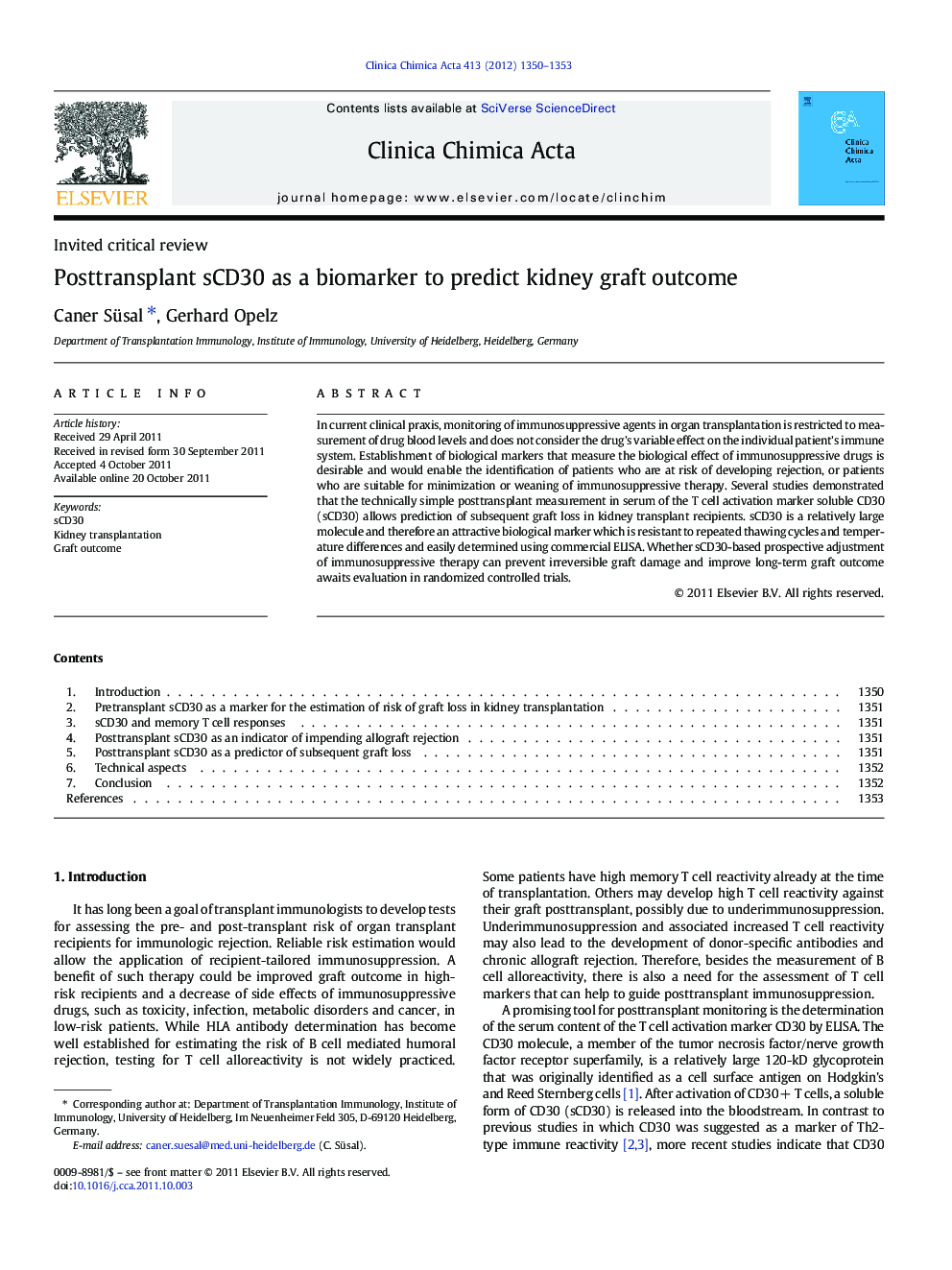| Article ID | Journal | Published Year | Pages | File Type |
|---|---|---|---|---|
| 1965904 | Clinica Chimica Acta | 2012 | 4 Pages |
In current clinical praxis, monitoring of immunosuppressive agents in organ transplantation is restricted to measurement of drug blood levels and does not consider the drug's variable effect on the individual patient's immune system. Establishment of biological markers that measure the biological effect of immunosuppressive drugs is desirable and would enable the identification of patients who are at risk of developing rejection, or patients who are suitable for minimization or weaning of immunosuppressive therapy. Several studies demonstrated that the technically simple posttransplant measurement in serum of the T cell activation marker soluble CD30 (sCD30) allows prediction of subsequent graft loss in kidney transplant recipients. sCD30 is a relatively large molecule and therefore an attractive biological marker which is resistant to repeated thawing cycles and temperature differences and easily determined using commercial ELISA. Whether sCD30-based prospective adjustment of immunosuppressive therapy can prevent irreversible graft damage and improve long-term graft outcome awaits evaluation in randomized controlled trials.
► In kidney transplantation, there is a need for reliable biomarkers. ► Biomarkers are required that measure effect of immunosuppressants on immune system. ► Memory T cell marker sCD30 can easily be determined using commercial ELISA. ► Posttransplant sCD30 allows prediction of graft loss in kidney transplant recipients.
